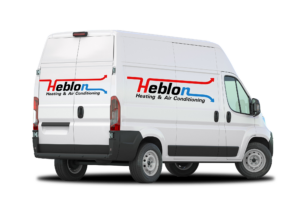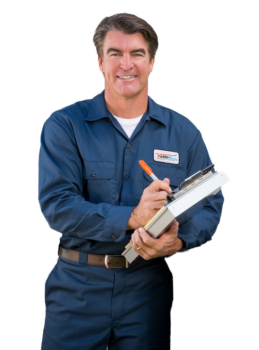As its currently mid-hurricane season, the risk of rain, wind and power outages is drastically high. But, hurricanes aren’t just a coastal problem, bringing the possibility of rain, wind, water and tornadoes to landlocked territories.
As hurricanes affect everyone, we all need to understand hurricane prep and essentials. To assist in Meridian hurricane preparation, Heblon Heating & Air Conditioning has compiled a list of steps to take when preparing for any storm.
Stay Stocked On Hurricane Essentials
Below is a list of items that could be considered useful. Know who is in your household and make sure you have enough for everyone.
- First aid kits, medical supplies and pet care items
- Access to a relative’s house or public shelter
- A vehicle with a full gas tank
- On-hand cash
- Medical alert tags or bracelets identifying disabilities
- Sturdy, waterproof clothing and shoes
- Cookware and eating utensils
- Non-perishable food and water (enough to last three-seven days, roughly one gall of water per person per day)
- Radio, flashlight and batteries
- Waterproof containers for storing important documents
Additionally, prepare lists of medications, important phone numbers, valuables and any other useful appliances.
Household Hurricane Prep
Indoor Protection
Heavy winds can break down your garage door and, quite possibly, rip your roof off — something no one wants to pay for after a storm. Brace your garage door to prevent this scenario. Also, locking all doors and windows provides further protection from glass and flying debris.
In severe storms, lightning can severely damage kitchen appliances and home entertainment systems. Unplug all your appliances or invest in a surge protector to decrease the likelihood of this scenario.
Outdoor Protection
Remove any dead limbs and overhanging trees that can cause damage in heavy storms. Additionally, secure or bring in outside furniture, consider hurricane shutters and de-clutter drains and gutters.
If you have a window or portable air conditioner, remove the units and ducts and seal any openings with discharge ducts that exhaust outside.
General Preparation
When starting hurricane prep, prevent flood damage by moving vehicles and valuables to higher locations. To make future property claims easier, have proper flood insurance and update your home’s inventory. If you or anyone in your home has a disability, identify if you need additional help.
Ensure insurance policies and personal documents are up to date and keep copies digitally protected. Charge your phone and purchase backup charging devices. Once you’re ready, assist neighbors, senior adults or those who need additional help securing hurricane plans.
Evacuation
Staying informed on updates and evacuation orders is the most important part of hurricane prep. Hurricane plans, which should include areas you frequent, must be known and understood by everyone in your house. To keep earning money after disasters occur, ensure your place of work has a continuity plan.
Evacuation zones might have to move quickly after a hurricane announcement. If you live in one, learn the route, practice with your whole household and identify places to stay. Based on threat levels and safety measures, local emergency managers provide the latest recommendations.
Stay updated and receive alerts through the FEMA app, National Weather Service, community alerts, Emergency Alert Systems and Wireless Emergency Alert Systems.
Address any concerns to your state’s emergency information management office.
Get Your AC Unit Hurricane Ready
Indoor Comfort
If a power outage is possible, pre-cool your home before the storm hits so you can stay comfortable until it is restored. To get a cooler indoor temperature, set your thermostat lower than usual, close curtains and blinds and keep doors and windows shut.
Outdoor Protection
Turn off electricity and power to your AC, thermostat and circuit breaker to prevent any damage caused by electrical surges. Debris should be cleared away so it doesn’t get stuck in the outdoor unit and burn the motor.
Cover your air conditioning unit with a tarp or plywood for protection from high winds and flying debris. Use hurricane straps to secure elevated outdoor condenser units. If floods are a risk, have an HVAC technician elevate the unit for extra protection.
As soon as the storm is over, turn on your air conditioner, if there is no damage, to prevent mold and mildew from settling in. If water, wind or debris has damaged the unit, turning it on can make it worse. Stay safe by contacting an HVAC expert if you have any problems, need repairs or want to check for damage.
Let’s Get Prepared Meridian!
So, proper hurricane prep helps everyone stay safe during summer and fall. Know what risks can hit your neighborhood, receive alerts, and start making sure you have the proper hurricane essentials. To keep your AC unit hurricane ready, or check it after a hurricane, contact Heblon Heating & Air Conditioning and schedule an appointment today.





